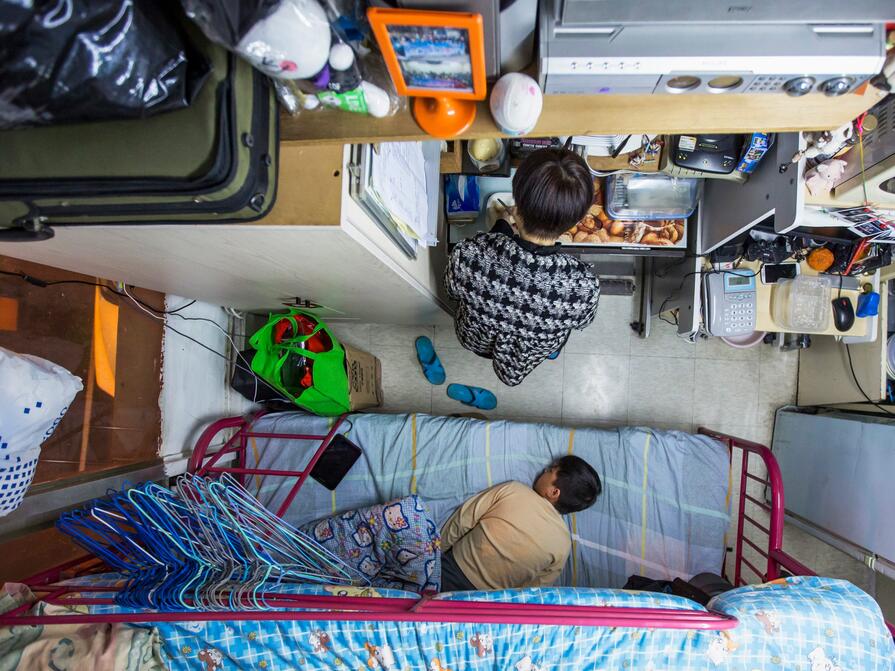Subscribe to our weekly newsletter to get them delivered straight to your inbox!
Many Americans are working from home to help curb the spread of COVID-19 and they're lucky to have the space to fit a desk and coffee maker, not to mention a couch and television for their Netflix breaks. For many in Hong Kong, working from home isn’t possible and for others it isn't so comfortable.
Hong Kong is one of the most expensive cities to live in and housing is extremely costly. To try to lower costs for buyers, developers have been turning out smaller and smaller homes. Since 2016, they've built 1,500 micro-apartments with less than 200 square feet to live in, costing over USD$2000 a month in rent. But these "shoebox homes" feel like Beverly Hills mansions compared to "coffin homes," where over a dozen units are squeezed into an apartment-sized space—leaving just 25 square feet to stretch your legs.
Almost half of Hong Kong's population lives in public housing, but the wait to get in is soul-sapping. Despite that, the government isn't building more to keep up with demand. But there is some hope for renters: due to a decline in housing prices, many people can now afford to upgrade to a more reasonable 600 square foot space.
- Jeff Wasserstrom looks at the history of protests in Hong Kong
- Panelists examine the issues driving the 2019 protests in Hong Kong
- Q&A with Dr. Victoria Tin-bor Hui on the NBA controversy
- Journalistic bias in Hong Kong protest reporting
- Lawyer Antony Dapiran discusses the escalating violence of protests




